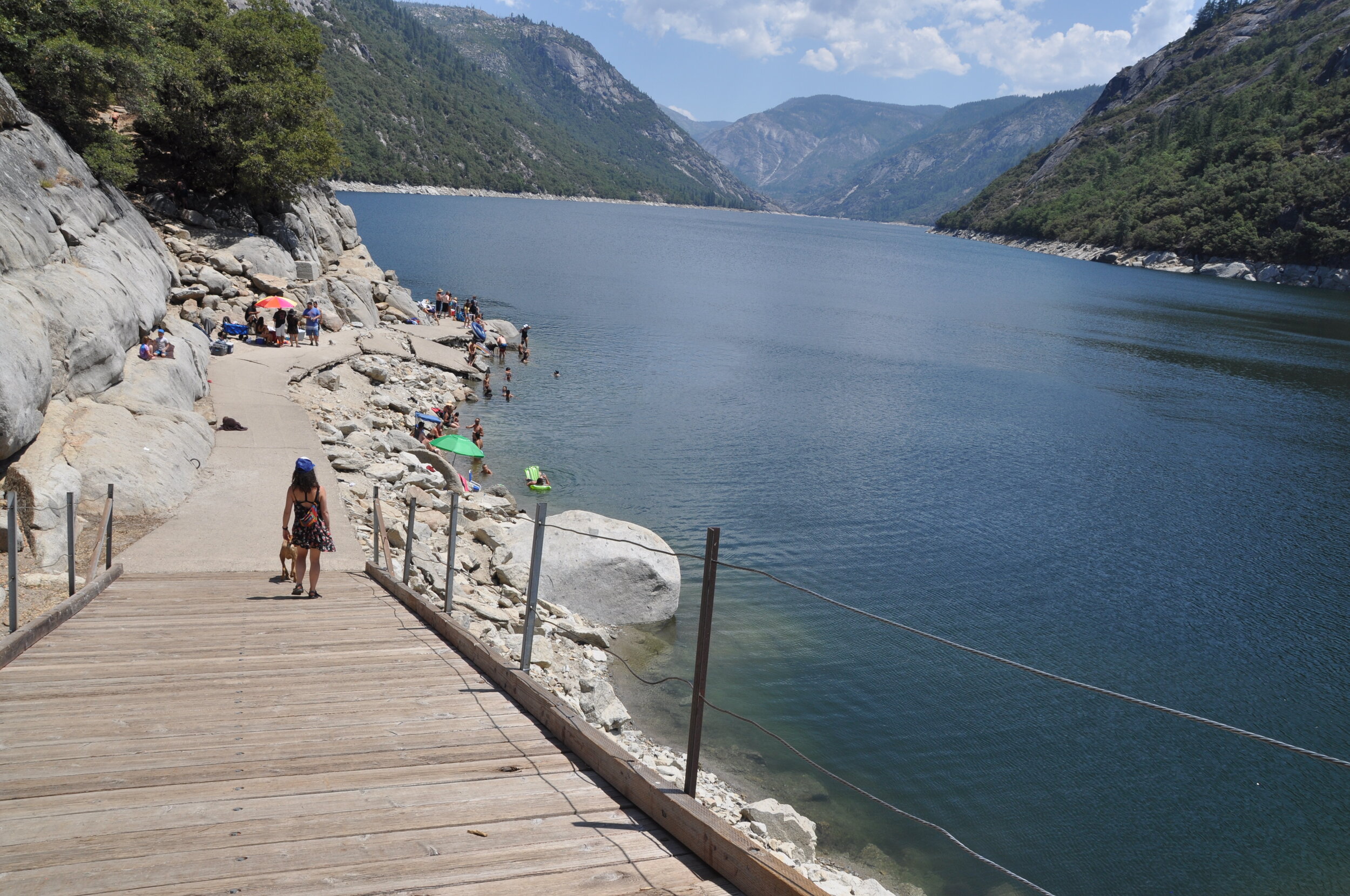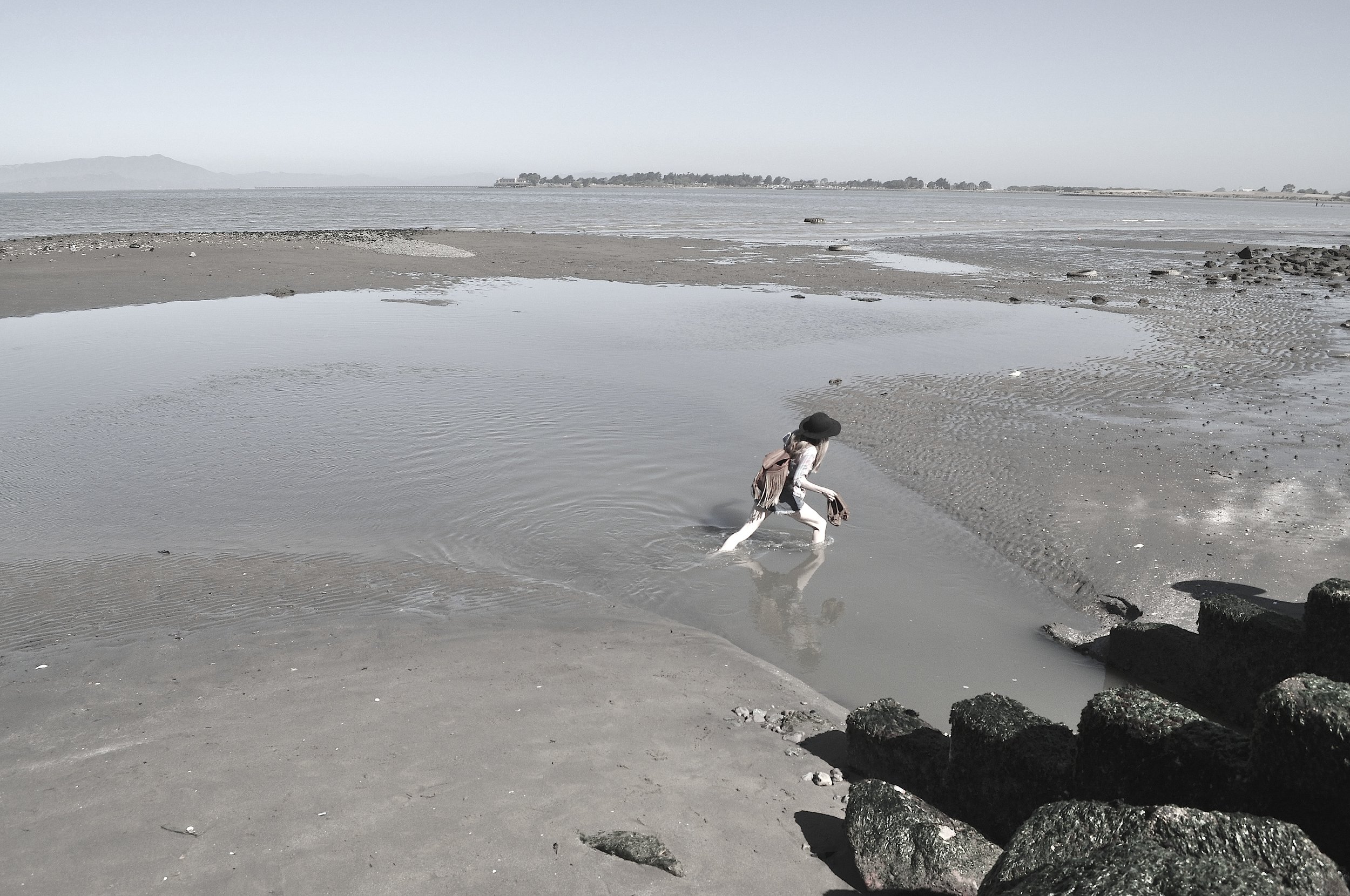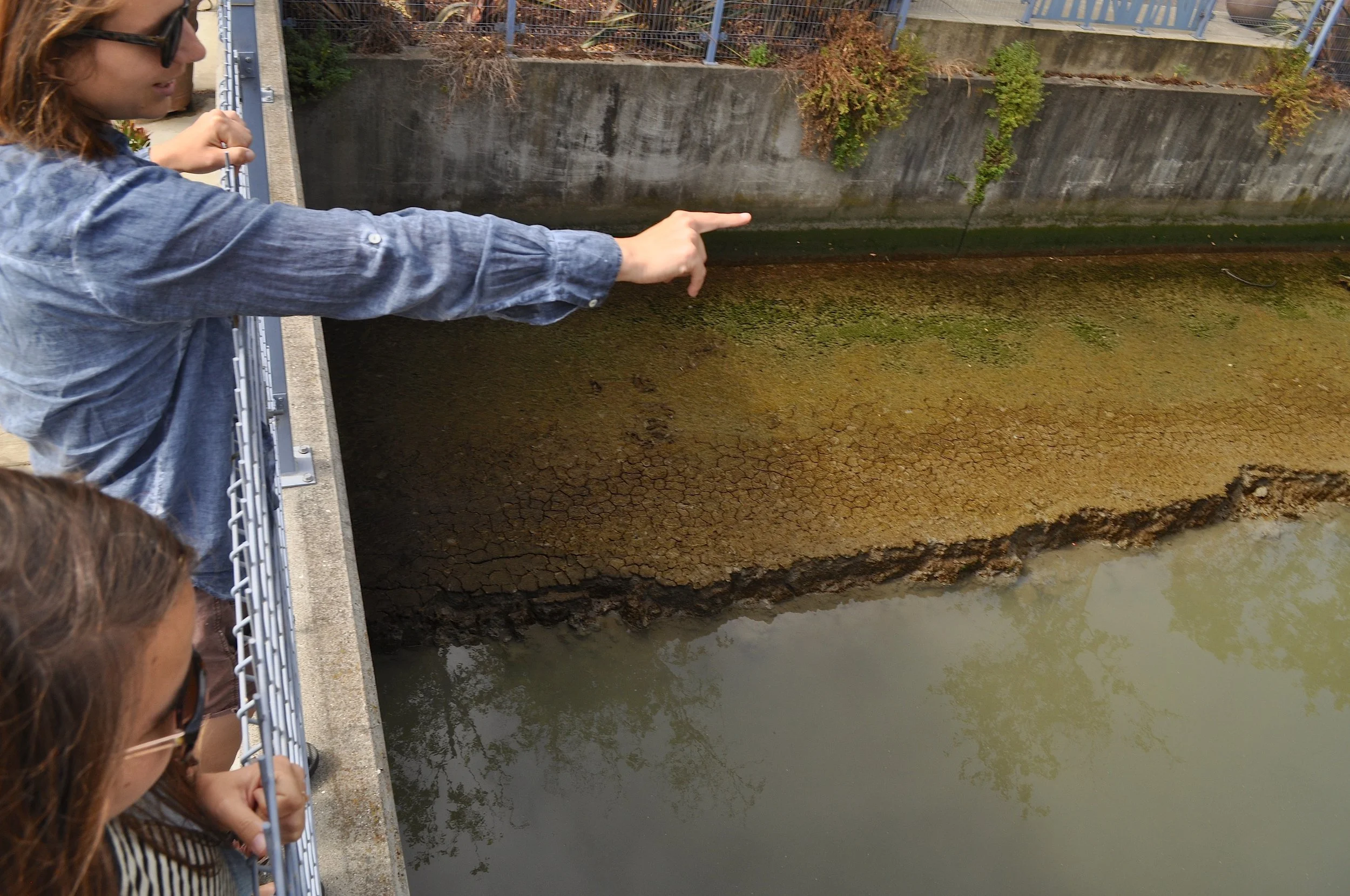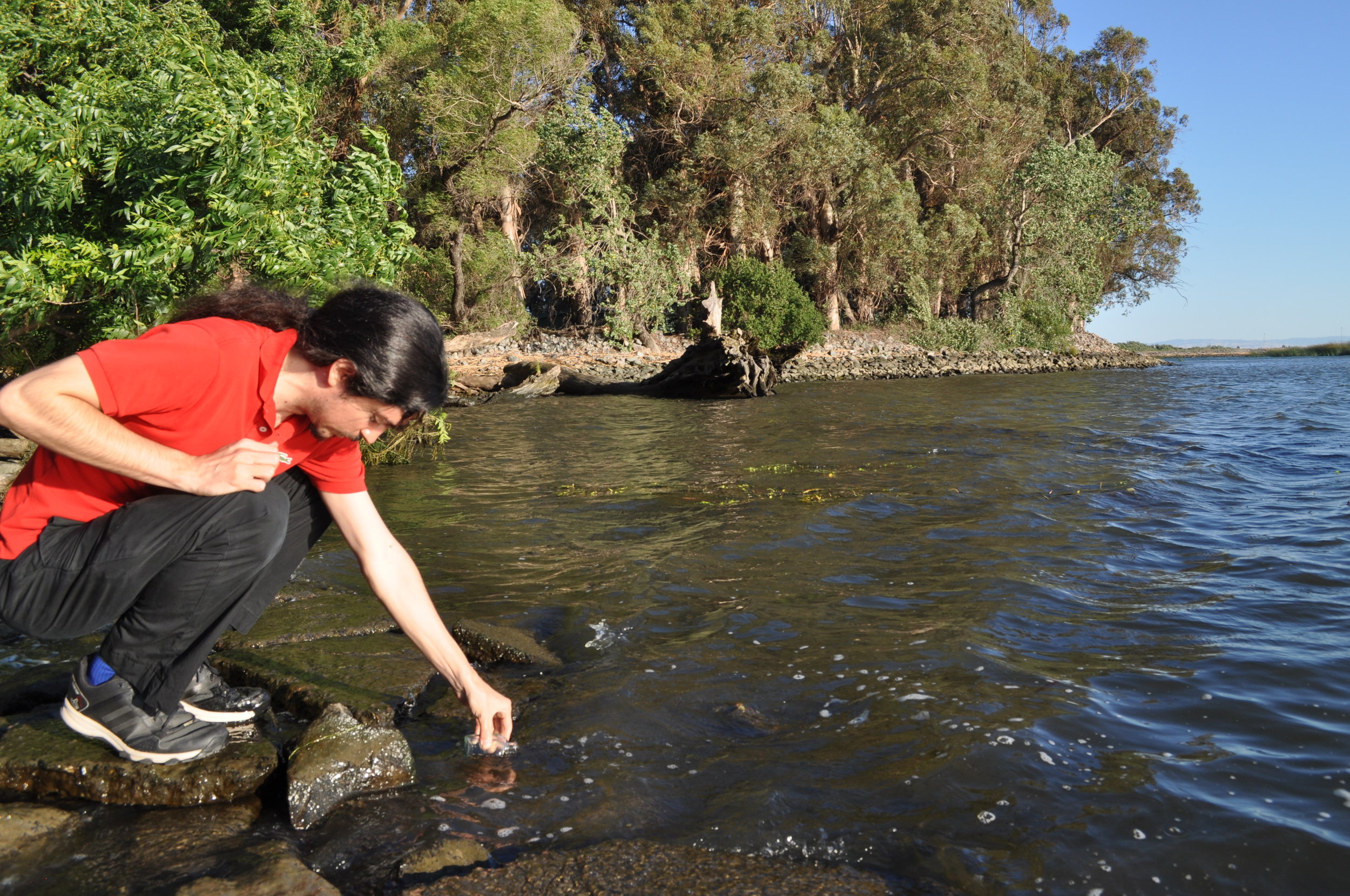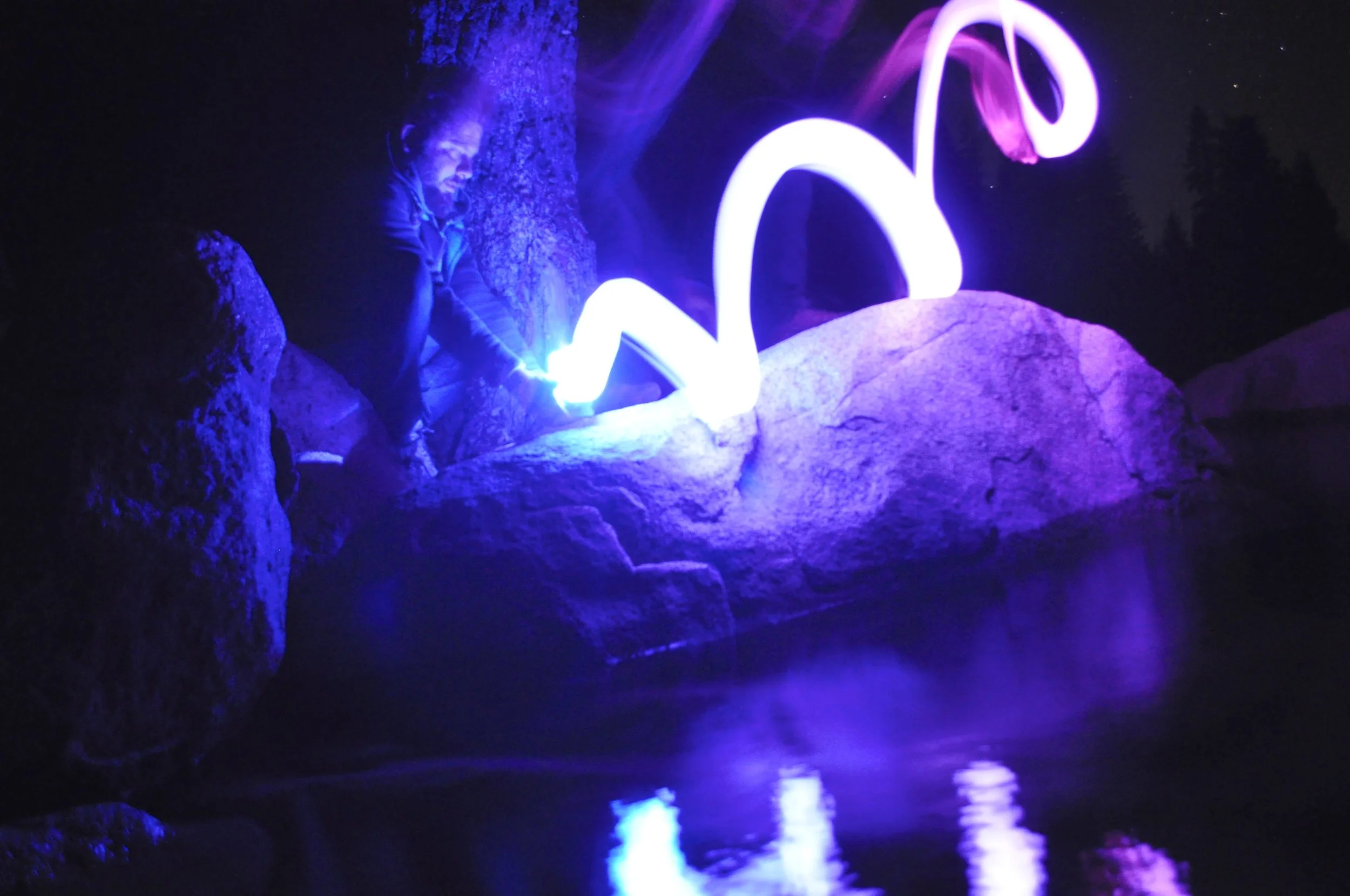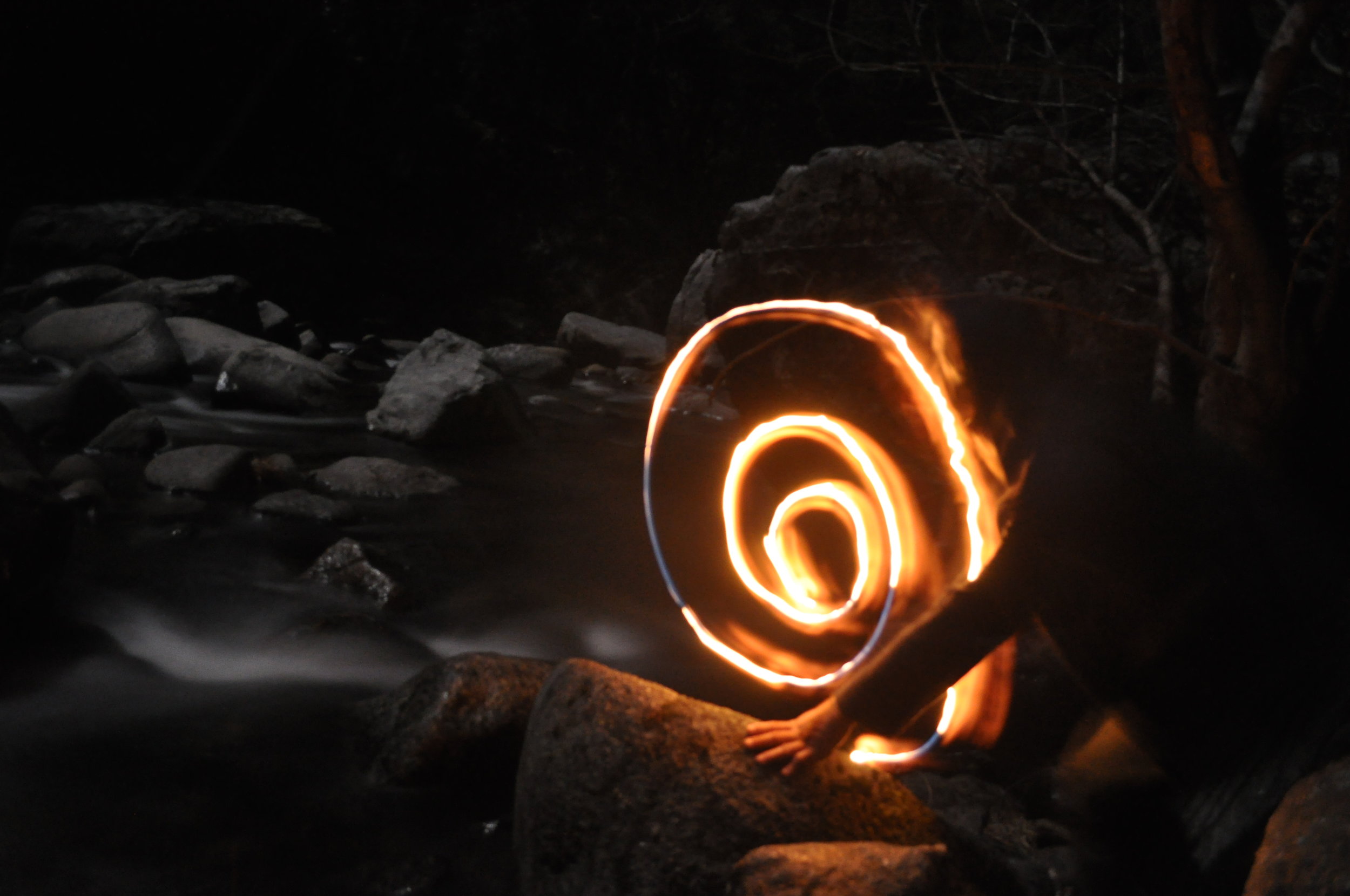East Bay ~
Mokelumne River
~Pardee & Lower Bear Reservoirs
Next overnight headwaters camping tour:
June 7/8, 2025
Meet Your River
With Us
Next MOKELUMNE TOUR:
June 7/8th, 2025
SELECT your TOUR HERE:
Drinking Water
Reservoirs Tour
(6 hrs) ($125)
Overnight Camping
Mountain Headwaters
(2 Days) ($245)
Scholarships Available
Personalized Meal Plans
10% of proceeds support:
Winnemem Wintu Salmon Run
Description:
The water that (still) pours from our East Bay taps doesn't come from anywhere near our neighborhoods. It originates roughly 100 miles away and crosses several fault lines, as well as a great deal of processing on its way into our homes. A living force that keeps us alive, yet many of us have never actually MET the river we rely on...
Our neighborhoods DO still have creeks, though they're almost all paved over. IN THE MORNING we'll begin with the nearest East Bay creek to YOUR house, discovering where it might still daylight, and BEGINNING OUR TOUR at the spot where it flows out into the bay.
We will gather everyone for our tour’s car caravan within sight of the Pacific Ocean’s horizon, through our estuary’s thin inlet throat, that unique portal of the Golden Gate.
NEXT, we’ll follow the flows of the Mokelumne Watershed from our house taps, past the water treatment centers and back-up reservoirs uphill in Orinda, stopping for a bite to eat at Pirates' Lair Marina Cafe, located on the exact curve where our river merges with the San Joaquin River and joins the DELTA confluence of 40% of California's other rivers.
IN THE AFTERNOON we'll trace the wide and meandering banks of our new friend the Mokelumne River across the steadily sinking Sacramento agricultural valley, past Lodi Lake, on our way to witness the precious Camanche and Pardee Reservoirs, where water for the East Bay is preserved.
THE DAY LONG TOUR ends here. Now two hours from Oakland, we've travelled the same distance Chinook Salmon follow to return home here to Camanche Fish Hatchery.
Seasons will shift. We'll still drink. Water is so simply fundamental, but the mechanisms for bringing this necessity across distances for so many humans are complex. It becomes sincerely meaningful, and helpful, for us to develop a deeper relationship with the river we rely on.
FOR THOSE CONTINUING ON FOR THE FULL TOUR... Depending on our interests and our time flexibility (we can decide as a group) we have a number of gorgeous options for the late afternoon and next day explorations, including:
~ HONOR the
largest indigenous
GRINDING ROCK
on the continent
the MIWOK CHAW'SE
SITE/MUSEUM ~
~ TOUR the
CAMANCHE RESERVOIR
FISH HATCHERY ~
~ HIKE the MOKE COAST
to CREST TRAIL ~
~ SWIM at the
MOKELUMNE DAY USE AREA ~
~ COMMUNE amidst the
WILD and SCENIC
PROTECTED portion ~
~ PARTY at
PARDEE RESERVOIR ~
AS EVENING APPROACHES, we usually drive another 45 mins up into the Sierras, gaining 5000 ft and arriving before dusk, setting up our CAR-CAMP at Lower Bear River Reservoir, alongside the epic, astounding, thunderous (but quiet where we're camping) Mokelumne River headwaters.
If a planned hydroelectric plant gets approved at Lower Bear, while construction occurs we may camp at PiPi campground on the magical Consumes River, a sister tributary of the Moke, with the opportunity to visit various headwaters areas in the morning. Wherever we camp ~ potable water, vault or flush toilets, dinner, breakfast, snacks, activities, and a peaceful place to rest will be provided.
IN THE MORNING we'll travel even deeper into the mountains, tracing our sustenance to the very SOURCE, those sacred springs that spread so far, supporting all the life where we live.
On these ECO-EDUCATIONAL IMMERSIONS, we'll learn more about the transforming ecologies of the river, hear how indigenous relationships with this river originated, co-create art, music, and earth-appreciation rituals, attempt citizen science research, take group and solo time with the waters, sleep under the stars, and share our skills around river preservation and sharing watershed consciousness.
Poetry and night river photography will be offered ~
Ah! It may be
being wakened
with the reassuring pitter patter of
raindrops on neighborhood rooftops
is so unusual now it takes some seconds
before I recognize the sound.
It may be
that I'm moved this morning
to reintroduce myself to a river
I've been drinking without thinking
for years, as it disappears.
It may be I'm experiencing
estuary estrangement
- but ah sweet wet -
the water cycle won't let me leave.
That's why I woke up -
I have to pee.
What to Bring:
Participants will please provide your own reliable vehicle for our car-caravan, your personal food and drink requirements (we will provide dinners and breakfasts, tiered meal plans available), appropriate clothing for both the valley and the mountain (including sun protection and a bathing suit), camping gear, covid masks and sanitizer if needed, and any other medicines or supplies you'll need for the journey. Participants are also asked to cover gasoline and park entrance fees. Camping fees are covered. A chargeable cellphone is certainly useful, though we will also have walkie talkies. Maps will be provided.
The journey to follow our water sources takes all day, crosses over 100 miles, stopping every 30-60 minutes, so it's a trek. But we'll pace ourselves, and stop for bathroom, stretching, and gas station breaks as needed. We'll provide a list of suggested items to bring in our Watershed Witness Tour Welcome Packet, and we'll bring extra of everything else important, like drinking water, snacks, art and ritual tools, video and still photography (for those who want to share your experiences), maps, a solar charger, musical instruments, flotation devices, stories, nightlights, toilet paper, and towels.
We welcome all communities of water-drinkers around the Bay Area, and don't want money getting in the way of learning how the water we drink is doing ~ so we offer four scholarship opportunities available for each tour. Just email joshua@watershedwitness.com for availability.
“I highly recommend participating in a Watershed Witness Tour! I learned a great deal in a short weekend from Josh, and from the experience which he carefully and generously crafted. Josh is an incredible teacher with a wealth of knowledge, insight and depth. He gives space for participants to explore and learn in their own way, create their own connection and meaning, while also gently guiding participants to make connections between the personal and the collective, the internal and the external, the micro and macro. Participating in a Watershed Witness Tour, I gained insight and information from an ecological perspective, a social/collective lens, and my own personal story, as well as how all these perspectives and stories intersect, overlap and dance with one other.”
— REBECCA SIEGEL
FAQ:
1. Is this tour recommended for all ages and abilities?
This tour is for everyone who drinks water! Folks of any age will learn and experience awe at the beauty of the river. It is important to note that we do spend multiple hours driving during the day. But though swimming, hiking, and rock scrambling are available, persons with limited mobility can expect opportunities to participate at every location, and we'll be more than happy to help with camp set up or any other needs as they arise.
2. What if I don't have a vehicle?
If we had a multiple weeks to explore, we could make this a walking watershed pilgrimage, as several friends of Watershed Witness have put together, but for just the weekend, we’ll find you a ride with one of our other participants.
3. Any boats on this river tour?
Boats of all kinds can be spotted along the Moke. They're also a serious next level of responsibilities if we include them in this tour. So our preliminary answer is ~ if kayaking or canoeing or white-water rafting are calling you, we can try to make it happen, just please let us know when you sign up. We usually bring river floaties, and then don’t use them, because folks want to wade or swim.
4. Is the tour more educational/scientific, more political/historical, or more relaxed, and kinda "woo-woo"?
We tend to keep our tours well-balanced. There are complex integral ecological stories occurring at multiple scales across each area of our watersheds, and we add to our scientific, cultural, and hands-on research every time we retrace this path along the river. We've also learned that by respecting the magic and emotions and creativity we experience meeting the living river we rely on, we tend to foster imaginative integrations of personal and community-oriented questions we may be grappling with, even encouraging ongoing mutually enhancing relationships with our water sources. So, however you relate to the river, we're with you.












